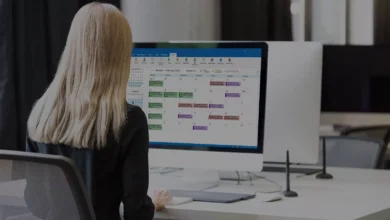The Pros and Cons Of Manufacturing Factoring

Factoring is a service that helps businesses to get the money they need, but it’s not right for every type of business. Find out the pros and cons of manufacturing factoring in this article!
What is Manufacturing Factoring?
Manufacturing factoring is a type of financing that allows manufacturers to sell their accounts receivable (invoices) to a third party at a discount. This provides the manufacturer with an immediate infusion of cash, which can be used to cover expenses, pay employees, or invest in new equipment or inventory.
There are several advantages to manufacturing factoring, including the following:
- It’s a quick and easy way to get funding.
- It’s flexible – you can choose which invoices to sell and when.
- There’s no need for collateral.
- You don’t have to worry about collections. The factor takes on that responsibility.
There are also some disadvantages to be aware of:
- You’ll pay a fee for the service – typically a percentage of the invoice value.
- You’ll lose the interest you would have earned if you had kept the invoice and collected payment yourself.
- There’s always the risk that the customer may not pay the factor, in which case you’ll be responsible for repaying the debt.
All in all, manufacturing factoring can be a helpful tool for companies that need access to quick cash but
How to Qualify for Manufacturing Factoring
Qualifying for manufacturing factoring is not as difficult as you might think. There are a few key factors that lenders will look at when considering your business for this type of financing. First, they will want to see that you have a strong customer base who regularly pays their invoices on time. They will also want to see that you have a good track record of sales and profits. Finally, they will want to know that you have a sound business plan in place for growing your business. If you can show lenders that you have all of these things in place, you should have no problem qualifying for manufacturing factoring.
The Pros and Cons of Manufacturing Factoring
There are many pros and cons to manufacturing factoring. On the plus side, it can provide much-needed working capital for businesses in the manufacturing sector. It can also help businesses improve their cash flow and manage their inventory more effectively. On the downside, however, manufacturing factoring can be expensive and it can put a strain on business relationships if not managed properly.
When considering whether or not to use manufacturing factoring, businesses should weigh the pros and cons carefully to see if it is the right fit for their needs.
What Happens if You Don’t Qualify for Factoring?
If you don’t qualify for factoring, there are still other options available to you. You can try to get a line of credit from a bank, or you can look into government loans. There are also a number of private lenders that specialize in small business loans. Whatever route you go, make sure you do your research and compare interest rates and terms before signing any loan agreement.
Conclusion
Overall, manufacturing factoring can be a great way to improve your business cash flow and get paid faster for your products or services. However, it’s important to weigh the pros and cons carefully before you decide if this financing option is right for you. Make sure you understand all the fees involved and compare offers from differentfactoring companies to find the best deal.




